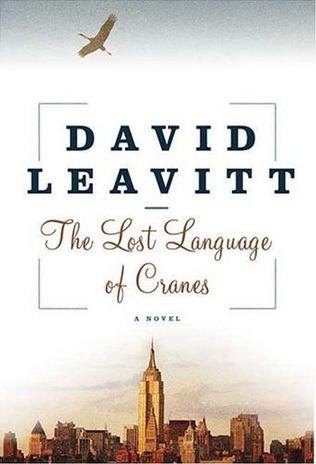

“Hope had stolen into his life just as he was growing comfortable with despair.”
― David Leavitt, quote from The Lost Language of Cranes
“Cautiously his foot explored, wiggled as it could, and finally felt warm flesh under the pants leg.”
― David Leavitt, quote from The Lost Language of Cranes
“Sometimes I think you are doomed to happiness”
― David Leavitt, quote from The Lost Language of Cranes
“She looked toward the window, smiling away her life”
― David Leavitt, quote from The Lost Language of Cranes
“Philip understood that there were people in the world like Eliot for whom love and sex came easy, without active solicitation, like a strong wind to which they had only to turn their faces and it would blow over them. He also understood that he was not one of those people. Instead, he seemed always to be eking out signals, interpreting glances, trying to extract some knowledge of another person's feelings from the most trivial conversations. Nothing came easy for him, and more often than not, nothing came of any of his efforts.”
― David Leavitt, quote from The Lost Language of Cranes

“That was the thing about guys, though: Sometimes, they had the emotional depth of a flea.”
― Sara Shepard, quote from Twisted
“Reading my personal accountI believe you feel-you-will know that the Holocaust was neither a legend nor Hollywood fiction but a lesson for the future! ”
― Livia E. Bitton-Jackson, quote from I Have Lived a Thousand Years
“The pictures do not lie, but neither do they tell the whole story. They are merely a record of time passing, the outward evidence.”
― Paul Auster, quote from Travels in the Scriptorium
“When robbed, the rich cry out for protection and prosecution. When stealing, they expect the judiciary to look the other way.”
― Steven Erikson, quote from Dust of Dreams
“Long, dark, and lovely she had been, in those days before her mind broke and the parts scattered and she let them go.”
― Daniel Woodrell, quote from Winter's Bone
BookQuoters is a community of passionate readers who enjoy sharing the most meaningful, memorable and interesting quotes from great books. As the world communicates more and more via texts, memes and sound bytes, short but profound quotes from books have become more relevant and important. For some of us a quote becomes a mantra, a goal or a philosophy by which we live. For all of us, quotes are a great way to remember a book and to carry with us the author’s best ideas.
We thoughtfully gather quotes from our favorite books, both classic and current, and choose the ones that are most thought-provoking. Each quote represents a book that is interesting, well written and has potential to enhance the reader’s life. We also accept submissions from our visitors and will select the quotes we feel are most appealing to the BookQuoters community.
Founded in 2023, BookQuoters has quickly become a large and vibrant community of people who share an affinity for books. Books are seen by some as a throwback to a previous world; conversely, gleaning the main ideas of a book via a quote or a quick summary is typical of the Information Age but is a habit disdained by some diehard readers. We feel that we have the best of both worlds at BookQuoters; we read books cover-to-cover but offer you some of the highlights. We hope you’ll join us.